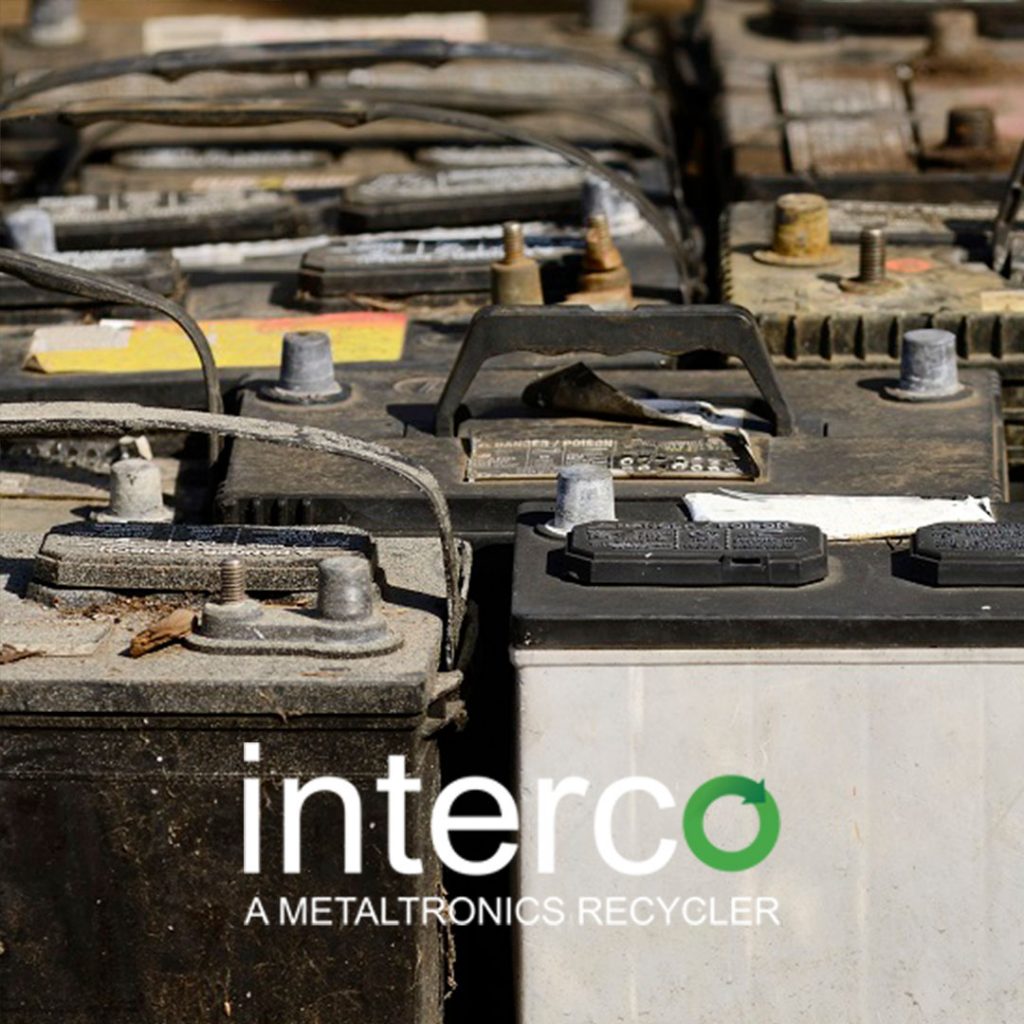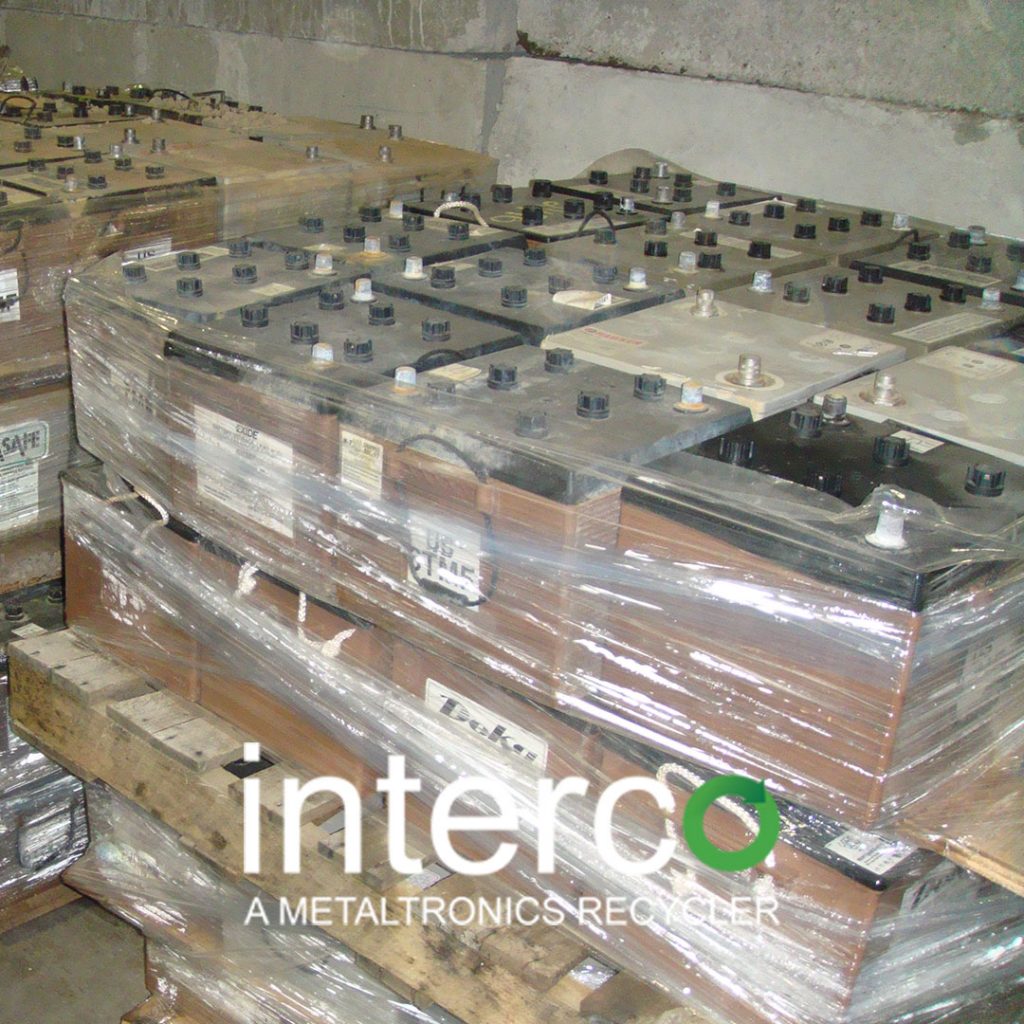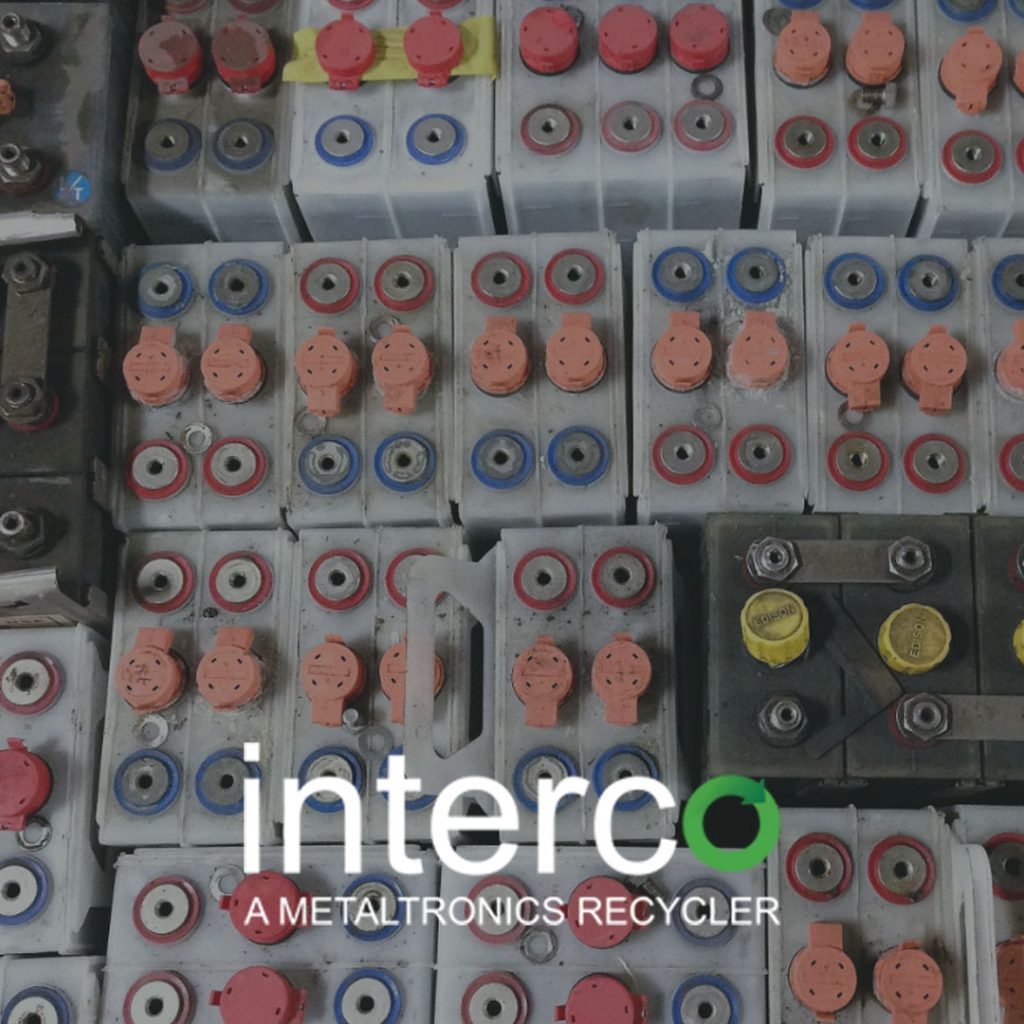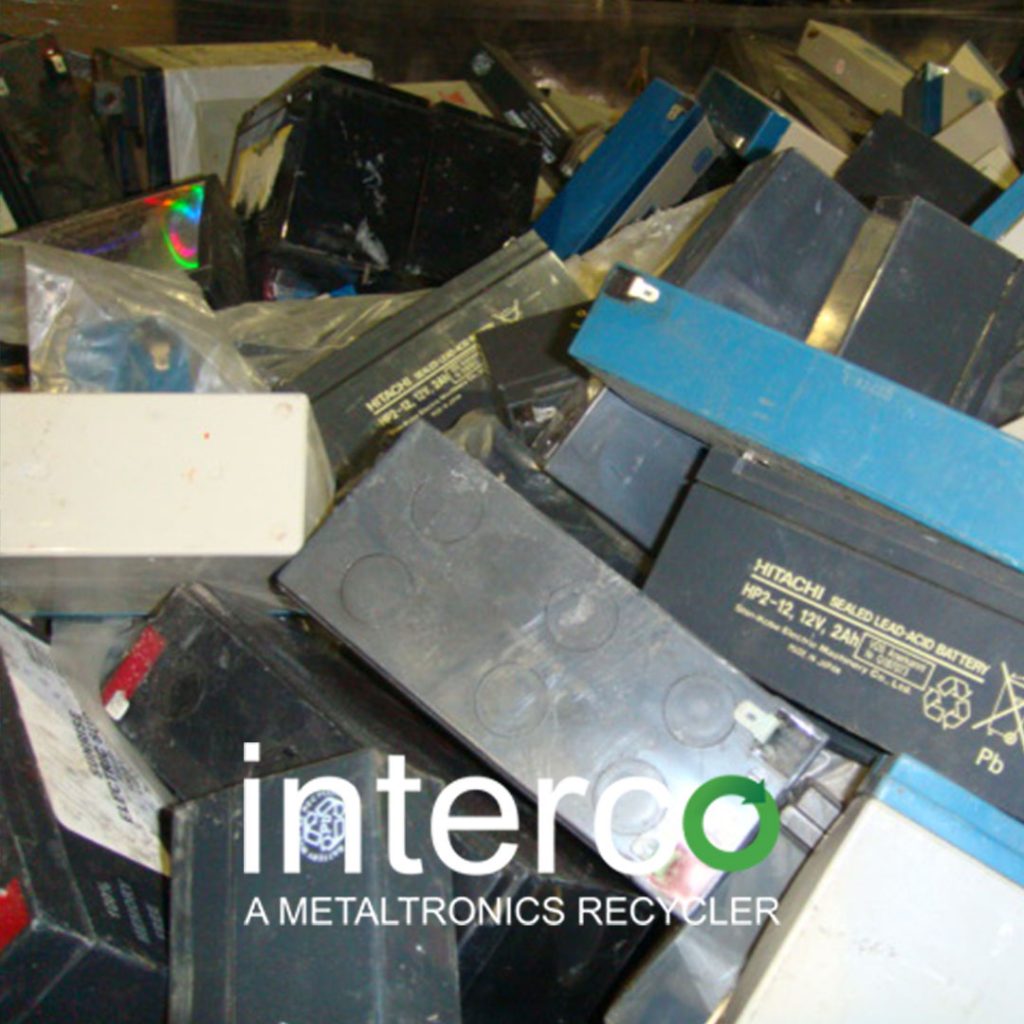Recycling Scrap Lead-Acid Batteries

Recycling Scrap Lead-Acid Batteries
Lead-acid batteries can be used in various applications and are very common in the market. The rise in manufacturing has created a need for a scrap lead-acid batteries processing facility.
Since lead-acid batteries have high lead content, used lead-acid battery waste (lead-scrap) is successfully recycled all over the world. Lead-acid batteries are fully recycled, and each part of old batteries is used for manufacturing new batteries.
Interco recycles lead-acid batteries as a certified and reputable scrap lead-acid batteries processing facility.
Lead-acid batteries represent the most recycled consumer goods in the United States. Today, nearly 99 percent of all lead-acid batteries are recycled and more than 85% of lead is used to manufacture lead acid batteries across the globe.
Consumers and companies that are aware of the potential values of batteries can earn cash from their scrap.

Why Recycle Scrap Lead-Acid Batteries
Recycling scrap lead-acid batteries are significant because of their composition and use. Manufacturers and consumers use lead-acid batteries as backup power supplies or to power things like the following:
- Automobiles
- Electric scooters
- Electric wheelchairs
Eventually, these batteries reach an end-of-life status or become obsolete. In addition, the average shelf life for lead-acid batteries is about 3 to 5 years before one considers a replacement or disposal method.
Lead-acid batteries have been used for more than 130 years in many different applications.
Consequently, lead-acid batteries depend on hazardous lead. They have a relatively lower volumetric energy density, which makes their deployment somewhat impractical for energy management applications, and so they are primarily used for power applications.
Several people and businesses recycle their scrap lead-acid batteries. As a result, car batteries, and any other type of large, lead-acid battery, cannot go in your household trash or recycling.
Thus, the significant rise in the number of vehicles is likely to produce increased quantities of scrap lead-acid batteries in the future.

Choosing the Right Scrap Lead–Acid Processing Facility
The recycling process must be performed in accordance with relevant standards. In fact, there are a few health and emissions risks: Uncontrolled drainage and disposal of battery acid Emission of lead particles and acid caused by inappropriate battery breaking processes
People exposed to these hazardous materials are at great risk of developing harmful medical complications. However, through responsible recycling, we can reduce some of those harmful effects. For instance, recycling decreases pollution in the soil, water, and air.
Manufacturers and other industrialists use lead-acid batteries in industrial heavy equipment and forklifts. Moreover, lead-acid batteries are very reliable as a backup or auxiliary power as an uninterruptible power supply (UPS) in computers, data centers, telecommunication, and hospitals.

How to Recycle Lead-Acid Batteries
Interco recycles lead-acid batteries primarily for their lead content. Here’s how to recycle lead-acid batteries
- First, recycling companies collect expired or used lead-acid auto batteries for battery depositories.
- The recycling company then neutralizes the acids. Then, they introduce a base that subdues the corrosive properties (toxicity) of the acid so it can be safely disposed of.
- A hammer mill shatters the battery or breaks it apart. Recyclers call the process hammering.
- Then, place broken pieces in a vat, so that the lead plates and heavy materials sink to the bottom while the plastic floats.
- They transport the polypropylene plastics into a plastic recycler to melt and refine them.
- Then, the process goes to clean the lead plates and heat them in furnaces, so they melt. After this, cast the molten lead into an ingot mold. After a few moments, the impurities float to the top of the cast, and they scrape them away.
- Finally, they re-melt the pure ingot casts and use them in new batteries.
Certified and reputable recycling centers perform the recycling process for lead-acid auto batteries carefully, and preferably in a controlled environment far from residential areas.
Recycling Scrap Lead-Acid Batteries with Interco
Recycling lead-acid batteries involve research for the best scrap lead-acid processing facility. The reuse process enables recyclers to recover valuable metals and reduces the harmful effects on the environment that improper disposal causes. The team at Interco accepts, processes, trades, and recycles an array of nonferrous metals. In fact, Interco recycles batteries of all shapes, sizes, and chemistry. Therefore, the team at Interco continues to lead the way in terms of innovative industrial recycling solutions. Click here to learn more about how to recycle scrap lead-acid batteries.